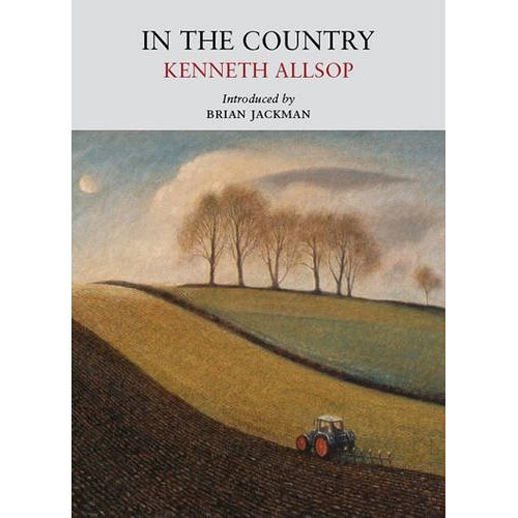
Kenneth Allsop – In The Country (Little Toller Books)
Reviewed by David Hemingway
Inspired by the likes of WH Hudson (A Shepherd’s Life) and Henry Williamson (Salar The Salmon) but seduced by Fleet Street, Kenneth Allsop combined these passions with a weekly column in The Daily Mail that would eventually morph into In The Country. First published in 1972, and now lovingly repressed by Little Toller, it was to become his most successful book. A year after its publication, Allsop took his own life, with an overdose of barbiturates.
I don’t really think there are many clues, although I’m struck by Allsop’s notes that writing is “rather melancholy and intensely solitary” and that people “always have been and presumably always will be, happy and unhappy.” Certainly, for a book that describes ancient forests and chalk streams, In The Country is cut through with revulsion and horror. The author is dismayed by the cruelty and short-sightedness on his door-step; by the deer inhumanely wounded by poachers and left to “hobble off to die in the hollows of infected wounds” and by the DDT “being squirted over the countryside like scent in a brothel” and poisoning birds. He even battles with his conscience about removing moles from his garden (he purchases poison but then doesn’t use it). Saddened by the closure of local pubs, he demands that “it is written into the constitution of the nation that every village must, as a public service and a monument to more sensible civilisations, maintain a pub.”
In The Country captures Allsop’s fears and concerns around land usage, about concrete and asbestos buildings, about ponds being filled with overdoses of pesticides, about the damage being wreaked on water supplies. Recently reading about the current government’s reforms of planning regulations, I was reminded of Allsop’s adage that “Money speaks, beauty is voiceless.”
But – equally or, perhaps, more so – In The Country is brimming with joy and excitement (at discovery, at learning, at identification) and I’m left with the feeling that it is actually one of the most life-affirming books I’ve read in a long while: As much as the countryside is a subject for Allsop to write about (and thus, presumably, pay his wage), it also often seems to provide him with an excuse to be away from his desk, to not be writing. Perhaps the ease with which he is diverted explains why he would work into the small hours, hammering out lines like “A vixen’s amorous cry sounds like the last strangulated screech of a victim garrotted by thugs” late into the night.
Allsop is “semi-anaesthetized” by the headiness of high summer but wonders if winter is his favourite season: “It is when the countryside comes clean. It has been scalped of all fussy tresses. Lapwings and fieldfares rough ride the winds, golden plover flash like glinting metal filings as they hurl towards the magnet hoop of black nimbostratus pincering around Eggardon’s ridge.” I’m particularly enraptured by Allsop’s encounter with a badger (“It cast a slightly surly glance back, a head with vivid humbug stripes and ridiculously petite ears with shell-pale rims,” he writes) and moved by his mourning for the swallows that haven’t settled at his mill (“I miss their rippling blue flight across the lawns, the flash of chestnut throat and white underparts as they soared up from drinking on the wing.”)
Penning a loving introduction, author/journalist Brian Jackman suggests that his close friend is within a “pantheon of writers who have strived to repair mankind’s broken covenant with the natural world.” Remarkably, approaching the fortieth anniversary of its publication, In The Country still seems utterly potent.
In The Country can be found in the Caught by the River shop, priced £10.00